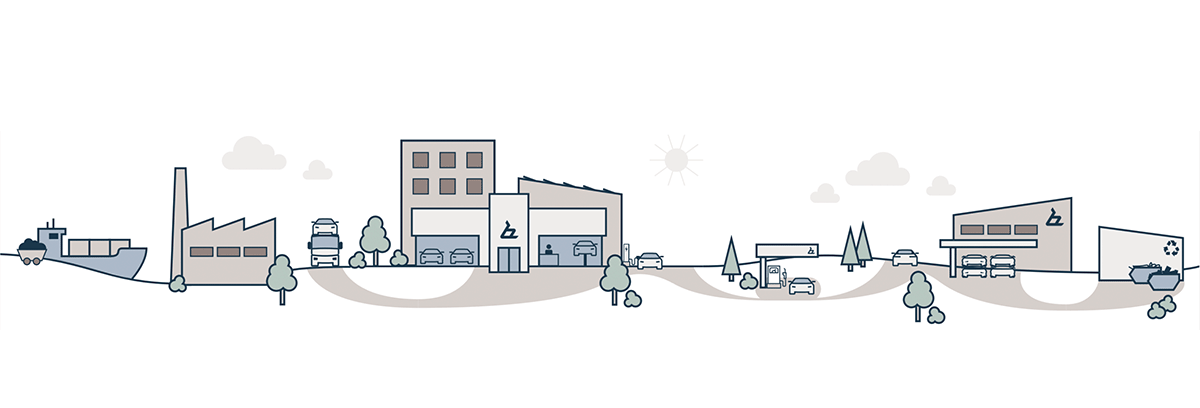Sustainable value chain

Work for a more sustainable value chain

Work with upstream suppliers and subcontractors
Bilia is part of a value chain and thus has a responsibility to influence suppliers and subcontractors to improve based on different sustainability perspectives. We have the greatest impact through our purchases of cars. The automotive industry has long supply chains from raw material extraction to car manufacturers who manufacture and assemble cars. Bilia has little opportunity to influence far back in the value chain. We have therefore chosen to collaborate with car brands that have high sustainability goals and clear ambitions as we see that this gives Bilia the greatest opportunity to contribute to creating a more sustainable automotive industry.
When it comes to suppliers in addition to our car manufacturers, we have a greater opportunity to influence. Bilia has introduced a group-wide code of conduct for suppliers that covers areas such as human rights, anti-corruption, the environment, etc. Bilia also has a group-wide purchasing policy to highlight the sustainability aspects when signing both central and local agreements.
Work with suppliers and customers downstream
As more and more electric cars are produced, we see a shift in climate impact from the use to the manufacture of the car. This means that we choose our car brands with care, as the car's design and production play a major role in sustainability work. But not everyone can afford to buy electric cars and, in turn, the impact of fossil-powered cars on the climate occurs in connection with the use of the car. Therefore, Bilia conducts needs analyses to find the most suitable cars based on our customers' conditions. Reduced climate impact can also be achieved through the sale of HVO and ethanol, but also through the addition of AdBlue in newer diesel cars.
An important part of the car's life cycle is the disposal of the used car. Through Bilia's car disassembly, we are involved in this stage and can work for more circular flows. Here we hope for a growing demand for used parts from both companies and private customers. In addition to lower environmental impact, used car parts are good for the wallet as they cost less. The last step in the life cycle is material recycling, where our waste contractors are an important part of making use of as much material as possible.
Hållbarhet
